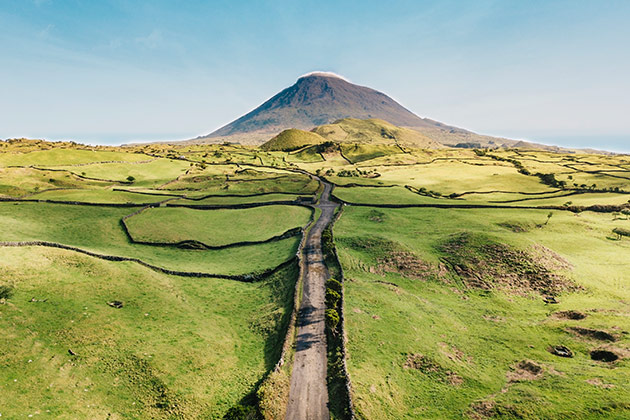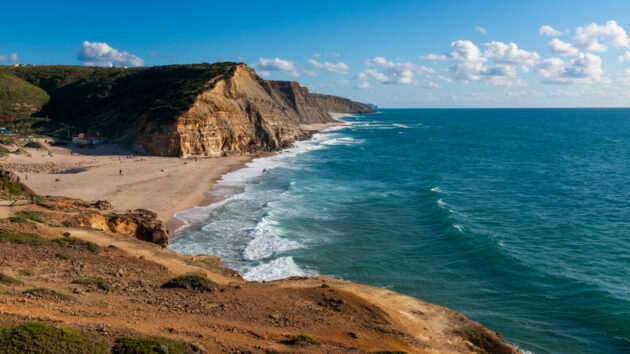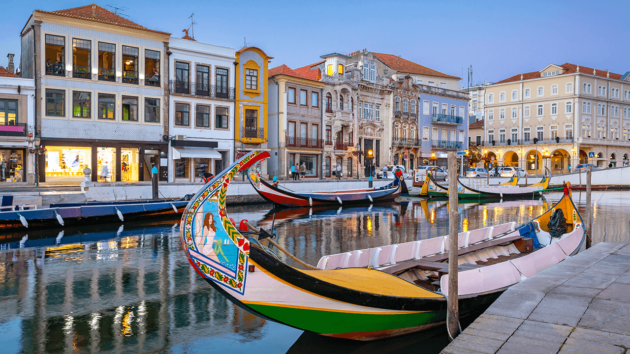
Living in the Azores is not as difficult as you might have thought. The Azores archipelago is made up nine paradisiacal islands. They all boast magnificent natural landscapes and friendly inhabitants. But because we want you to be well informed, there are several things you need to take into account if you do decide to move to the Azores. Read on for more information.
What you really need to know
1. The geographical reality
Living in the Azores means being permanently surrounded by the ocean, with all that implies. You could either feel relief from the constant bustle of cities like Lisbon and Porto, or, if you’re the sort who needs the buzz, you might feel quite isolated. What for some could be a complete nightmare, for others is an opportunity for personal well-being, in touch with nature, as close to paradise as you could get.
2. Better quality of life
For anyone coming from outside, living in the Azores will mean a radical improvement in quality of life, marked by tranquillity and the rhythms of nature. It could also mean new business opportunities or possibilities for investment, especially if related to tourism on the islands.
Over the past ten years there has been considerable business growth, especially in activities related to local and rural accommodation.
3. Lower cost of living
The cost of living in the Azores is considerably lower than in mainland Portugal. Housing prices and food are generally lower, except for some products which have to be imported and are therefore quite a bit more expensive. Even VAT is lower in the Azores (18% on the archipelago, compared to 23% on the mainland).
If you take into account that there are no tolls, less need to drive, leading to less wear on cars and the fact that regular cars only need to be inspected every two years, this is another reason the cost of life is lower for people who decide to live in the Azores.
4. Easier island-hopping
It used to be very difficult and expensive to get around the islands, but that has changed. Currently, it is easier and cheaper to travel between the nine islands of the Azores, and residents can apply for a mobility subsidy in case they need to travel regularly to the mainland or to Madeira.
5. No traffic
Living in the Azores means saying goodbye to the stress of endless traffic in the big mainland cities, which translates into more time for you and for your family. Distances are short, which cuts down on hours lost in commutes when compared to the mainland cities.
6. Good business offers
As the Azores have evolved, gone are the days when you couldn’t find basic things on the islands. Currently there are plenty of supermarkets, hairdressers and shops. Of course the supply can’t compare with the mainland, but it is enough to make sure that nothing is lacking for the local population.
7. Healthcare
One of the main disadvantages of living in the Azores is lack of adequate healthcare. The supply varies from island to island, but some of the smaller islands have little to offer.
8. Unstable weather
The Azores are known for having four seasons in one day, and this can be either romantic or annoying, depending on your personality. Nonetheless, one quickly gets used to tis apparent instability and begins to appreciate the fact that both the days and the nights are mild.
9. A good opportunity for practicing sea sports
Living in the Azores can be a great opportunity for practicing sea sports, since the ocean is always present. Just enjoying the beach or surfing and bodyboarding are very popular on the islands, as are other activities such as diving or fishing.
10. One hour behind the mainland
The time zone (one hour behind mainland Portugal) can be another factor which makes newcomers either very happy or very displeased.
If on one hand it is good to think that the rat race has started on the mainland while we are still resting, on the other it can make one feel really late when you need to arrange a conference call with Lisbon or another city.
So, now that you know what is in store for you, are you ready to move to paradise?
Know more: Guide to visiting the Azores



